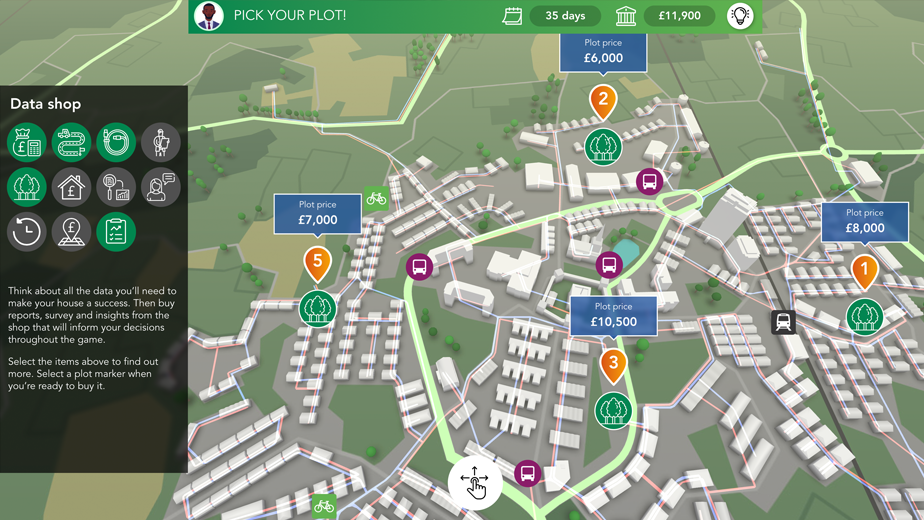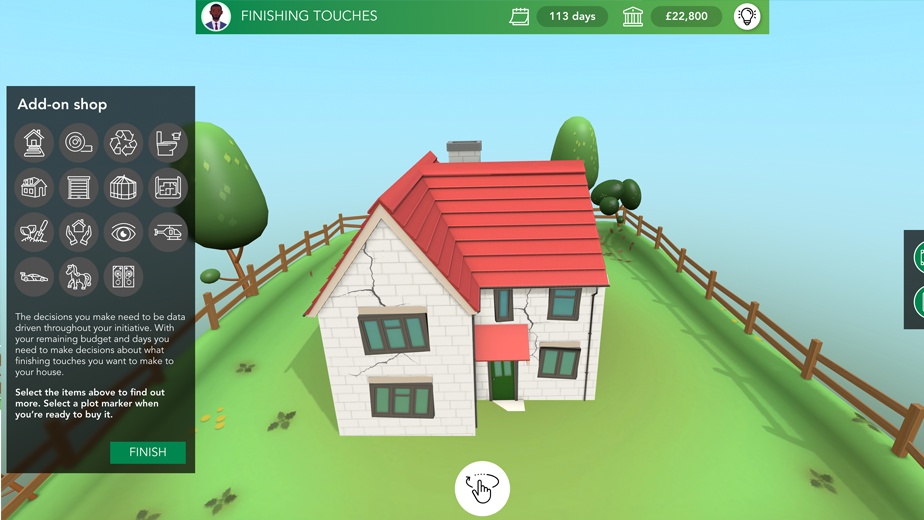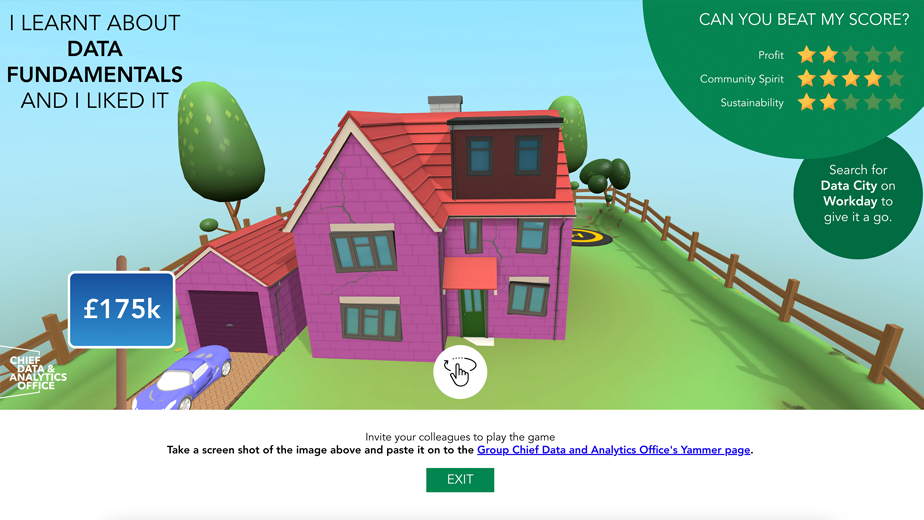Data analytics make the world go round. With 2.5 quintillion bytes of data created every day, there’s an abundance of information to be mined and valuable insights to be discovered – if only we knew how to tap into it.
In 2021, a report by the UK government found that half of businesses struggle to recruit for roles requiring data analytic skills. Upskilling workers to improve data literacy is increasingly becoming a priority for executive leaders.
And it’s not just analysis where there are knowledge gaps about data. Anyone across an organisation who might from time to time need to touch, change and transform data – which is basically everyone in an organisation – benefits from having a better understanding of data and its usage, capture, storage and control.
In this project, Lloyds asked us to help create a solution to drive engagement through a digital learning experience to make content about data relatable and fun, and to look at the subject beyond pie charts and number crunching into something with practical usefulness for a broad audience.
Here’s a little known secret for you. Exploring data, when contextualised through a tangible real-world scenario, can be exceptionally enjoyable.
No, really.
For this project, we created a serious game which gave learners a single clear objective: build a house within a fictional city.
Learners can choose from a range of characters to play with, from the profit-motivated property tycoon through to a social-conscious environmental campaigner. With the character’s goals to keep in mind, learners then set out with a fixed budget and time scale to build the best house possible for the specifications they need to work to.
But, along the way there are plenty of opportunities for the project to be thwarted. Not using data or using the wrong data can lead to you falling foul of building regulations, running out of cash, incurring fines or missing critical deadlines.
There is help on hand, however. Feedback at the end of each round tells you not only how well you’re applying data to make each decision, but whether you’ve even using the right data in the first place.
Done well, serious games (or, to be more precise, “games that have a primary purpose other than merely to entertain us”) can be an excellent way to engage and motivate learners.
By setting learners a simple goal – to build a house – we give learners a clear instruction that doesn’t exhaust their cognitive power trying to digest complicated rules. Learners are left instead to push beyond their existing knowledge and skills, gathering what they need throughout the course of the game in order to achieve the desired end result.
But, just like in the real world, charting a path through the abundance of information is easier said than done. This brings a genuinely meaty challenge to the game. The greater number of pitfalls increases the chance of error; there’s next to no chance that learners can coast through the game with fluke and guess work. To succeed in Data City, you have to be engaged. Even then, if you get to the end and find the house you’ve built contains cracks, or there’s a toxic leak under the foundations, you can’t help but want to go back to start and have another go.
By laying bare the complexity of the subject matter, the game shows how data underpins everyday life in substantial ways. Even for the maths-averse like me, seeing the application of data in a real-world task opens up insight into how data can help us do things much better.



We’re always happy to talk to you about how immersive technologies can engage your employees and customers. If you have a learning objective in mind, or simply want to know more about emerging technologies like VR, AR, or AI, send us a message and we’ll get back to you as soon as we can.